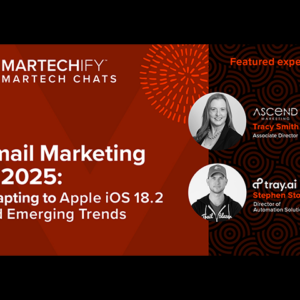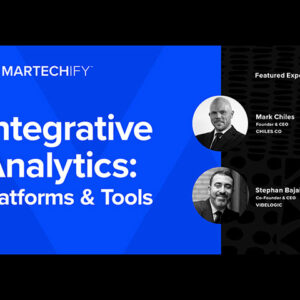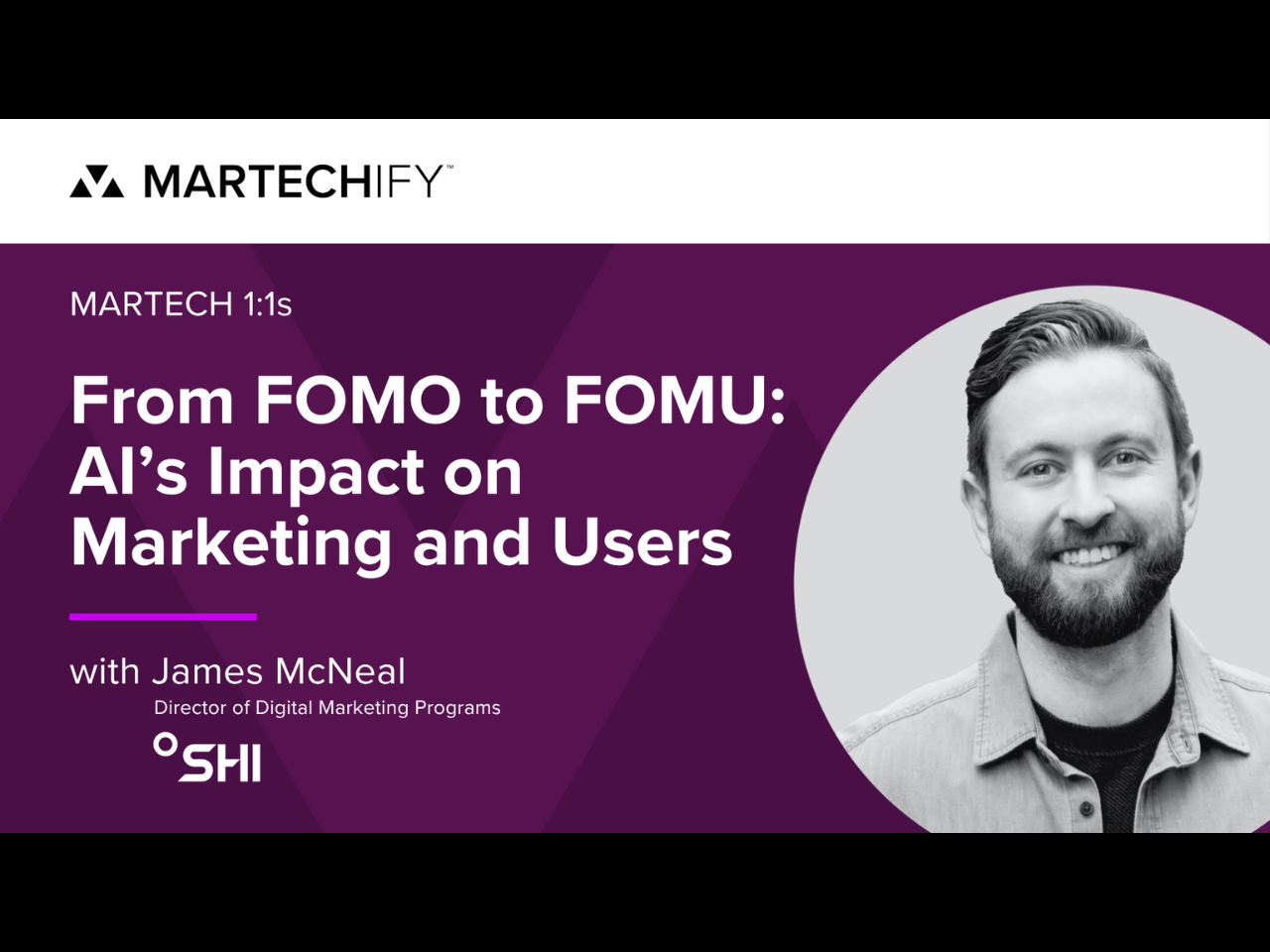Patient Engagement in 2025 and Beyond: Expert Insights from Healthcare Marketing Leaders
It is no secret that every industry operates within its own unique framework, defined by its own challenges and standards. This month, we decided to explore martech in the healthcare industry and highlight several experts representing different aspects of the field, including pharma, clinical care and hospital systems, and a specialized healthcare agency.
The Martechify team reached out to the following three experts to hear their thoughts on the future of patient engagement: How can martech be leveraged for better outcomes in 2025?
– Brittany Smalls, Digital Marketing Manager at UPMC
– Nikki Ramirez, Director of Growth Solutions at Unlock Health
– Amy Schroyer, Chief Marketing Officer at Roundstone
The Martechify team reached out to the following three experts to hear their thoughts on the future of patient engagement: How can martech be leveraged for better outcomes in 2025?
– Brittany Smalls, Digital Marketing Manager at UPMC
– Nikki Ramirez, Director of Growth Solutions at Unlock Health
– Amy Schroyer, Chief Marketing Officer at Roundstone
Below are the common themes that all the experts touched on.
1. AI and personalization will drive patient engagement
– AI-powered personalization will be essential in healthcare marketing. Patients increasingly expect customized experiences based on their search behavior, health concerns, and prior interactions.
– Martech tools (e.g., CRM, automation, AI-driven chatbots) will help marketers engage patients at the right time with relevant content, whether it’s search-driven content, follow-up emails, or retargeting ads.
– AI will predict patient needs, enabling providers to dynamically generate recommendations and content.
Example: A patient researching ACL injury recovery might receive personalized ads for rehab services, local provider directories, or post-op care resources.
– Martech tools (e.g., CRM, automation, AI-driven chatbots) will help marketers engage patients at the right time with relevant content, whether it’s search-driven content, follow-up emails, or retargeting ads.
– AI will predict patient needs, enabling providers to dynamically generate recommendations and content.
Example: A patient researching ACL injury recovery might receive personalized ads for rehab services, local provider directories, or post-op care resources.
2. SEO and search intent will be critical for patient acquisition
– Healthcare brands must own high-intent search queries and optimize for featured snippets and local SEO to improve visibility and credibility.
– Search-driven marketing (SEO, structured data, and local SEO) will be crucial to ensure healthcare providers appear in relevant searches.
– Content visibility and trust (E-E-A-T: Experience, Expertise, Authority, Trustworthiness) will influence patient decisions, making organic search a priority over paid ads.
Example: Patients turn to Google first for healthcare-related queries before booking an appointment (e.g., “best dermatologist for acne scars” or “urgent care near me”).
– Search-driven marketing (SEO, structured data, and local SEO) will be crucial to ensure healthcare providers appear in relevant searches.
– Content visibility and trust (E-E-A-T: Experience, Expertise, Authority, Trustworthiness) will influence patient decisions, making organic search a priority over paid ads.
Example: Patients turn to Google first for healthcare-related queries before booking an appointment (e.g., “best dermatologist for acne scars” or “urgent care near me”).
3. Compliance and privacy-first personalization will be key challenges
– Patients want personalized healthcare experiences but also data privacy and transparency.
– With third-party cookies disappearing, marketers must rely on first-party data and consent-based engagement (e.g., gated health assessments, opt-in email marketing, AI-driven chat experiences).
– Regulations like HIPAA, GDPR, and state privacy laws require healthcare marketers to ensure strict compliance while personalizing content.
– AI can help by automating compliance-related tasks while delivering tailored content.
Example: Instead of using third-party tracking, marketers can re-engage potential patients via first-party data strategies–for example, sending a personalized email with patient testimonials or relevant blog articles based on a patient’s prior site activity.
– With third-party cookies disappearing, marketers must rely on first-party data and consent-based engagement (e.g., gated health assessments, opt-in email marketing, AI-driven chat experiences).
– Regulations like HIPAA, GDPR, and state privacy laws require healthcare marketers to ensure strict compliance while personalizing content.
– AI can help by automating compliance-related tasks while delivering tailored content.
Example: Instead of using third-party tracking, marketers can re-engage potential patients via first-party data strategies–for example, sending a personalized email with patient testimonials or relevant blog articles based on a patient’s prior site activity.
4. Martech and CRM systems must be optimized for seamless engagement
– Many healthcare organizations struggle with disconnected martech stacks, leading to poor visibility into the patient journey.
– A unified martech approach (including CRM, marketing automation, and content management systems) is essential for tracking and optimizing the patient experience across touchpoints.
– The goal is to map the full patient journey, from first contact (Google search) to engagement (content, AI chat, email marketing) and conversion (appointment scheduling).
Example: Instead of isolated marketing efforts, a well-integrated martech stack would allow healthcare providers to track and engage patients throughout their entire healthcare journey, ensuring a seamless and personalized experience.
– A unified martech approach (including CRM, marketing automation, and content management systems) is essential for tracking and optimizing the patient experience across touchpoints.
– The goal is to map the full patient journey, from first contact (Google search) to engagement (content, AI chat, email marketing) and conversion (appointment scheduling).
Example: Instead of isolated marketing efforts, a well-integrated martech stack would allow healthcare providers to track and engage patients throughout their entire healthcare journey, ensuring a seamless and personalized experience.
To read the full article featuring insights from each expert, click the links below.
Read Nicole Ramirez’s article
Read Brittany Smalls’ article
Read Amy Schroyer’s article
Read Nicole Ramirez’s article
Read Brittany Smalls’ article
Read Amy Schroyer’s article













